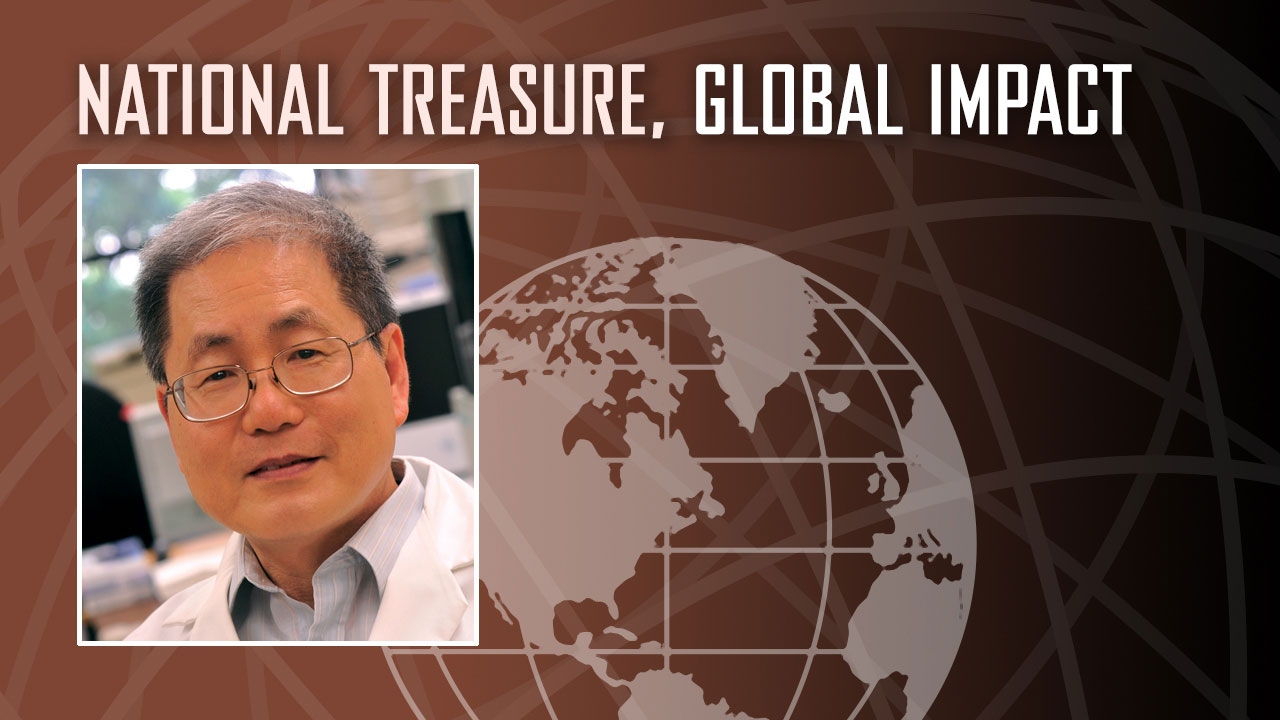If Moon Nahm, M.D. (pictured above), needs any reminders about the importance of his work, all he has to do is look at the name of his lab: the World Health Organization Pneumococcal Serology Reference Laboratory at UAB. In this lab, recently named “a national treasure” in a National Institutes of Health review, Nahm works to make pneumonia vaccines affordable worldwide. More widespread use of cheaper vaccines could help protect the estimated 1.6 million children who die yearly from S. pneumoniae infections, the leading cause of pneumonia.
“We need to reduce the cost for use in developing countries—from more than $100 a dose in the United States to less than $10 per dose,” says Nahm, professor of pulmonary, allergy, and critical care in the School of Medicine. Already, Nahm has discovered a method to rapidly and inexpensively test whether a vaccine could kill the S. pneumoniae bacteria—a revolutionary finding that has brought more than 100 lab workers from around the world to UAB to learn more. On top of that, Nahm has expanded the understanding of S. pneumoniae, discovering seven of the 97 different types of the capsule that holds the bacterial strains. His numerous patents and licensing agreements also have made him one of UAB’s most prolific inventors, as measured by licensing income.
Nahm’s childhood in war-ravaged Korea shaped his interest in using research to help others. After moving to St. Louis with his family as a teenager, Nahm entered medical school, focusing on infectious disease because of its potential threat to human existence. He joined UAB in 2000.
Despite the distance, Nahm remains close to his homeland, mentoring many Korean researchers and serving on the scientific advisory group for the International Vaccine Institute, Seoul. In 2002, Nahm was chosen as one of 20 outstanding Korean medical scientists by the Korean Medical Association.
“Very few careers have been as impactful as Dr. Nahm’s,” writes Bernard Beall, Ph.D., chief of the Streptococcus lab at the National Center for Infectious Diseases. “Dr. Nahm’s impressive work in immunology, polysaccharide chemistry, cell biology, vaccinology, and many different areas can be described as nothing short of pioneering.”


